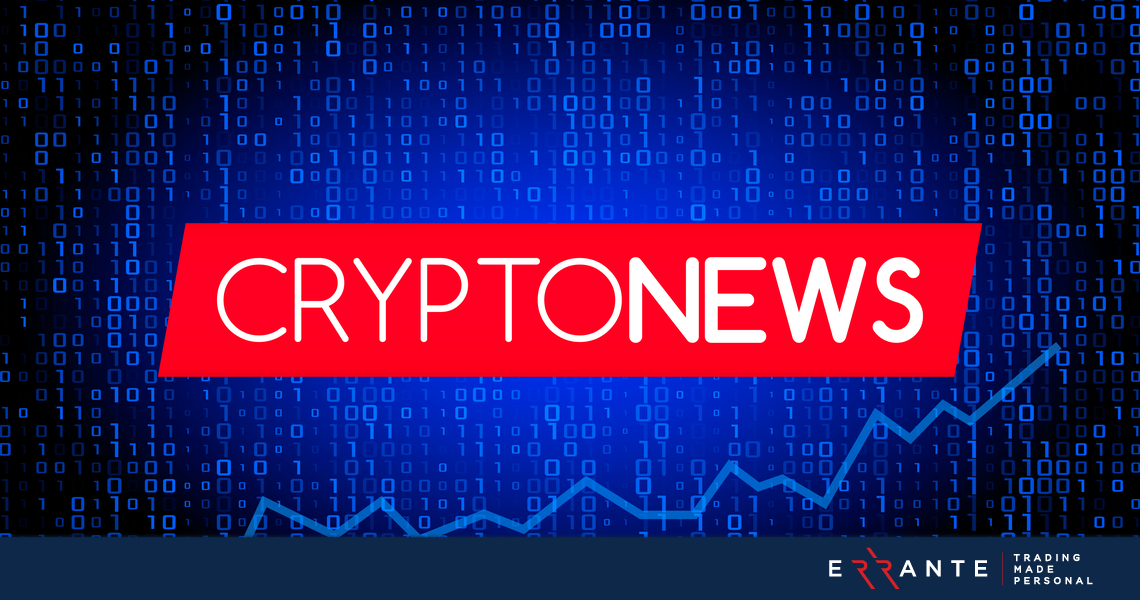The Duty of copyright News in Predicting Future copyright Trends
An Extensive Overview of one of the most Considerable Stories and Insights From the Digital Currencies Sector
The digital money sector has actually gone through transformative adjustments that warrant a closer examination of its most considerable stories. From enhanced governing actions targeted at making certain compliance to groundbreaking technological advancements that improve the efficiency of deals, the landscape is quickly developing. Furthermore, the increase of decentralized money and the increasing approval of cryptocurrencies by mainstream corporations existing appealing dynamics. As we check out these developments, it comes to be vital to consider not just the existing state of the market however also the implications for its future trajectory. What lies ahead in this ever-shifting field?
Governing Developments in Digital Currencies
The landscape of electronic currencies is increasingly formed by governing developments as governments and economic authorities look for to develop structures that balance advancement with customer defense and monetary stability - copyright news. Over the last few years, global regulatory authorities have actually magnified their examination of electronic money, dealing with issues associated to money laundering, fraud, and market volatility
Countries such as the United States and participants of the European Union have actually recommended or passed legislation aimed at producing clear guidelines for copyright procedures. These laws commonly require exchanges to implement Know Your Client (KYC) policies and comply with anti-money laundering (AML) protocols. Countries like China have taken a more restrictive technique, outright banning copyright trading and Preliminary Coin Offerings (ICOs)
The development of Central Financial institution Digital Currencies (CBDCs) even more complicates the regulatory landscape, as nations check out government-backed electronic currencies as a way to enhance monetary inclusion and simplify deals. As regulators worldwide job to develop meaningful policies, the electronic currency market need to browse these evolving guidelines to foster advancement while making sure durable consumer protections and systemic security. Generally, continuous regulative growths will significantly influence the future trajectory of electronic money and their assimilation right into the international monetary system.
Technical Advancements Shaping the Sector
Technical developments are essentially changing the electronic money market, driving improvements in protection, scalability, and purchase efficiency. Among the most noteworthy developments is the implementation of blockchain innovation, which supplies a decentralized journal that boosts transparency and reduces the risk of fraudulence. copyright news. This innovation enables for protected peer-to-peer deals without the demand for middlemans, thus streamlining procedures and reducing prices
Furthermore, the rise of Layer 2 options, such as the Lightning Network for Bitcoin and numerous Ethereum scaling options, has actually dramatically boosted deal throughput. These advancements make it possible for faster and less costly purchases, attending to the scalability concerns that have tormented lots of blockchain networks.
Smart agreements have actually also arised as a crucial development, automating procedures and minimizing the requirement for hands-on treatment. These self-executing contracts assist in trustless arrangements, thus boosting the general efficiency of electronic purchases.
Moreover, improvements in cryptographic methods, such as zero-knowledge evidence, are enhancing personal privacy while maintaining compliance with governing standards. Jointly, these technical improvements not just strengthen the infrastructure of electronic money however also pave the way for wider adoption and integration right into the global economic system.
Increase of Decentralized Finance

Within this structure, numerous applications have arised, including decentralized exchanges (DEXs), lending platforms, and yield farming methods. These platforms allow individuals to trade possessions, borrow, and lend without relying upon typical banks, hence boosting financial inclusion. Furthermore, wise contracts play a critical duty in automating purchases and imposing agreements, which decreases the risk of counterparty defaults.
The DeFi landscape has observed exponential development, with total value secured in DeFi procedures reaching billions of dollars. This surge mirrors growing passion from both retail and institutional investors seeking options to conventional financial products. Nonetheless, the increase of DeFi also questions concerning governing compliance, protection susceptabilities, and market volatility.
As the DeFi market evolves, it offers a chance for technology while also testing existing monetary standards, possibly improving the future of global finance for many years ahead.
Mainstream Adoption of Cryptocurrencies
Accelerating interest in cryptocurrencies has actually driven them into mainstream economic discourse, with many people and organizations identifying their potential as viable possessions and tools of exchange. The increasing approval of electronic currencies has actually been shown by their combination right into various industries, why not look here including retail, money, and innovation. Significant companies such as Tesla and copyright have begun to accept cryptocurrencies as payment, more legitimizing their usage in everyday deals.
As governing frameworks evolve, they are providing a clearer pathway for cryptocurrencies to exist side-by-side with standard economic systems. This governing quality is essential for promoting trust and urging additional financial investment in electronic assets. Furthermore, the surge of user-friendly platforms has simplified gain access to for the typical customer, advertising more comprehensive engagement in the copyright economic situation.
Future Trends and Forecasts
Looking in advance, the future of digital money is positioned for considerable advancement driven by improvements in technology and adjustments in market characteristics. As blockchain modern technology remains to grow, we are likely to see enhanced scalability and interoperability amongst various digital money, fostering a much more natural environment. This technical progress will next page allow faster deal rates and lower expenses, making digital money a lot more appealing for daily usage.
Furthermore, regulative frameworks are expected to become a lot more specified, providing more clear standards for businesses and financiers. This governing quality will likely urge institutional adoption, as economic entities look for to integrate electronic money right into their procedures. The surge of main bank digital money (CBDCs) will likewise improve the landscape, as federal governments discover methods to digitize their financial systems while making sure security and safety.
In addition, the assimilation of fabricated intelligence and device understanding in trading and investment strategies will certainly improve market evaluation and decision-making processes. As electronic money continue to obtain grip, customer education and learning will play a crucial function, equipping individuals to navigate this complex home setting properly. Generally, the trajectory of electronic money recommends a transformative phase, identified by development, regulation, and wider acceptance.
Final Thought
